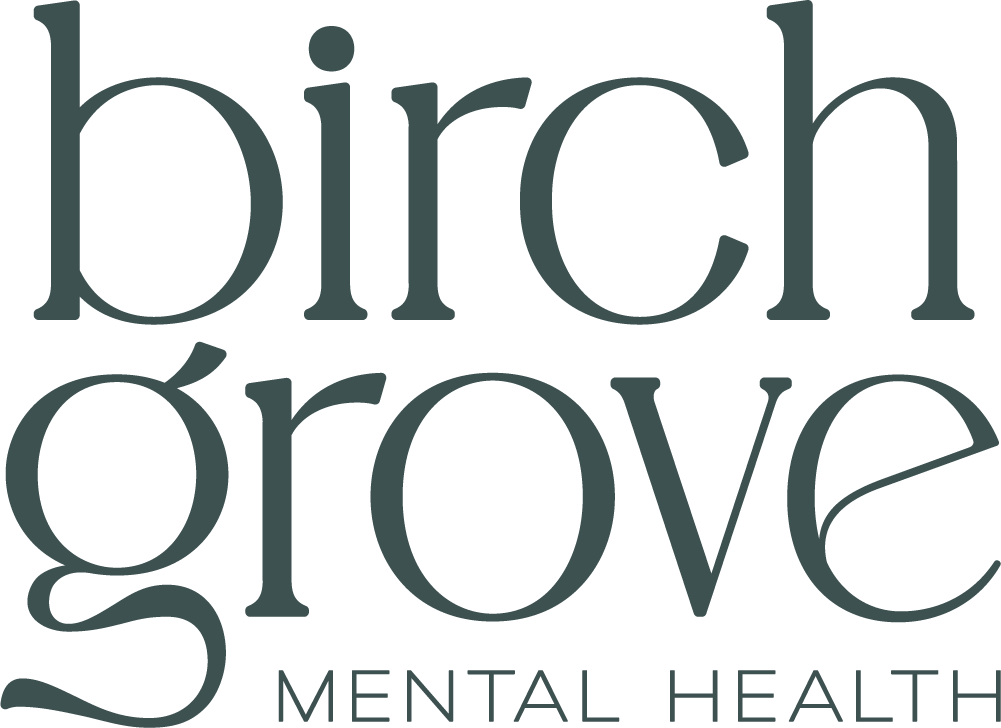
Is your bipolar disorder medication plan meeting your goals toward stability?
Living with bipolar disorder
Bipolar Disorder
Bipolar disorder, or manic-depressive illness, is more than just feeling happy one day and down the next. It’s a complex mental health condition that involves significant and often unpredictable mood swings.
These shifts range from manic or hypomanic episodes, where individuals might feel euphoric, highly energetic, or even impulsive, to depressive episodes that bring heavy feelings of sadness, fatigue, and hopelessness.
What makes bipolar disorder particularly challenging is how it affects every aspect of your life – from how you think and act to how you interact with the world.
During manic phases, people may find themselves taking risks they wouldn’t normally take, spending money recklessly, or feeling invincible.
Meanwhile, depressive episodes can leave them struggling with low energy, withdrawing from loved ones, and even having difficulty getting through everyday tasks.
It’s not just an emotional rollercoaster; it’s a condition that shapes behavior, decision-making, and relationships. But understanding it is the first step toward managing it, and toward supporting anyone affected by it.
Day to Day
Living with bipolar disorder can truly feel like you are riding an emotional rollercoaster, but it’s not just the ups and downs, it’s how unpredictable they can be.
Imagine waking up one day full of energy, brimming with big ideas, and feeling like you can take on the world. That’s what a manic episode can feel like. But this “high” often comes with impulsive decisions, trouble sleeping, and racing thoughts that may leave someone feeling overwhelmed.
Then, almost without warning, the wave crashes, and a depressive episode sets in. That’s where feelings of emptiness, exhaustion, and lack of motivation take over, making even the smallest tasks feel insurmountable.
The impact on daily life is profound. Work deadlines might feel unmanageable during depressive phases, while manic periods could lead to mistakes caused by overconfidence or impulsivity. School becomes a challenge when concentration slips and emotions feel out of control. Even simple routines—like cooking dinner or paying bills—can feel like mountains to climb.
With understanding, support, and treatment (all vital ingredients) individuals with bipolar disorder can navigate these challenges and find ways to balance their emotional scales.
The path will likley have its twists and turns, but it’s not without hope and the opportunity for stability.
Relationships
Bipolar disorder can make maintaining relationships challenging at times, but it’s important to understand that these difficulties stem from the condition, not the person.
The mood swings associated with bipolar, whether it’s the high-energy intensity of a manic episode or the isolation of a depressive one, can sometimes create a rift between individuals and their loved ones. For instance, impulsive behaviors during mania might lead to financial strain or broken trust, while emotional withdrawal in depressive episodes can leave family members feeling shut out or unsure of how to help.
For partners, these challenges might manifest as confusion or frustration when they don’t understand the shifting moods. Children, meanwhile, may struggle to make sense of changes in a parent’s behavior, leading to worry or insecurity. Even extended family members might feel the strain if they’re unsure how to approach or support their loved one.
However, with understanding and effort, relationships don’t have to falter… they can even grow stronger. Open communication is the cornerstone of navigating these challenges. Letting loved ones know what bipolar disorder is, how it affects you, and how they can support you creates an environment of trust and empathy.
It’s also essential to set boundaries and establish routines that prioritize both stability and connection.
Support goes both ways, too. Loved ones might need time to process and adapt, and they may need their own outlets for guidance, such as support groups or therapy. Working together, families and partners can find a rhythm that allows for compassion, forgiveness, and growth.
Managing bipolar disorder within relationships isn’t easy. With patience and mutual understanding, it’s absolutely possible to preserve and strengthen the bonds with the people who matter most.
Daily Challenges
Managing bipolar disorder is undoubtedly a journey filled with ups and downs, but it’s also one of resilience and hope.
The unpredictable nature of mood swings can feel like trying to weather a storm without knowing when it will pass. For many, routines become an anchor, something reliable that provides a sense of stability even when emotions feel anything but steady. Simple acts like maintaining a consistent sleep schedule or planning daily tasks can go a long way in reducing the chaos of mood shifts.
One of the toughest hurdles is the stigma attached to bipolar disorder. Facing societal misconceptions or judgment can make individuals feel isolated, yet acknowledging the condition openly and finding supportive communities can change that narrative. Empowerment often begins with education—both for oneself and for others—and challenging those outdated stigmas.
The physical and emotional toll of dealing withn your bipolar can be immense. Sleep disturbances aren’t just inconvenient, they can exacerbate mood swings and impact your overall health. Difficulty concentrating might make work or personal projects feel insurmountable, while emotional exhaustion can seep into relationships and self-esteem.
But this is where the right strategies come into play… consistent therapy, close medication management, and even lifestyle changes like mindfulness and exercise can create positive shifts over time.
It’s important to remember that managing bipolar disorder doesn’t mean erasing it; it means learning to work with it.
With determination, self-awareness, and a strong support system, people living with bipolar can reclaim their balance and build lives filled with meaning, joy, and fulfillment. Every small victory—be it a stable week or a healthier coping mechanism—marks progress, and progress deserves celebration.
Treatment Options
Treatment Options and Outcomes
Bipolar disorder treatment aims to stabilize mood swings and help individuals lead fulfilling, balanced lives. A combination of approaches often yields the best results:
Medications:
- Mood stabilizers are commonly prescribed to minimize manic and depressive episodes.
- Antipsychotic medications may be used for severe symptoms, particularly during manic phases.
- Antidepressants can sometimes help with depression, though they are typically used cautiously to avoid triggering mania.
- Medications must be closely monitored to adjust dosages and minimize side effects.
Therapies:
- Cognitive Behavioral Therapy (CBT) can teach coping skills to manage mood changes and improve thought patterns.
- Family therapy can be very effective in repairing relationships and, importantkly educates loved ones on how to support the individual effectively.
- Interpersonal and Social Rhythm Therapy focuses on maintaining daily routines and sleep schedules to stabilize mood swings.
Lifestyle Adjustments
- Sleep hygiene is vital, as disruptions can exacerbate mood swings.
- Stress management techniques, like mindfulness and relaxation exercises, help prevent triggers.
Support Systems
- Joining support groups provides a community of understanding peers.
- Working with a psychiatric nurse practitioner ensures personalized care and continuous guidance.
Treatment Outcomes
Living with bipolar disorder may mean acknowledging it as a lifelong companion, but it doesn’t define a person… it’s a part of their story, not the whole narrative.
The beauty of modern treatment lies in its ability to empower individuals to not only manage the disorder but thrive despite its challenges. Medication is often a cornerstone of treatment, helping to stabilize mood swings and bring balance back to daily life. Mood stabilizers can smooth out the highs and lows, while other medications may be prescribed to address specific symptoms, like agitation or depression. But medication alone isn’t enough, it works best as part of a broader approach to care.
Therapy plays an equally vital role. For example, cognitive behavioral therapy (CBT) equips individuals with practical tools to navigate their emotions and recognize patterns in their thoughts and behaviors. Psychotherapy also offers a space to process experiences, rebuild confidence, and set meaningful goals. Some therapies even focus on strengthening family and interpersonal relationships, helping loved ones better understand what it means to live with bipolar disorder.
Consistency is key, and building a routine can make all the difference. Regular sleep, balanced nutrition, and exercise aren’t just healthy habits, they actively support emotional regulation and mental health. Stress management techniques, like mindfulness or breathing exercises, can also act as shields against potential triggers.
These are all not easy things. It takes effort to step out and up.
The rewards of treatment go beyond symptom management. Many folks find that as they regain control over their moods and are able to reconnect with their passions… whether that’s pursuing hobbies, advancing careers, or deepening relationships with loved ones.
Stability opens the door to feeling grounded and resilient, allowing people to navigate life’s ups and downs with greater ease. Support from a caring network is super essential to your success. Whether it’s friends, family, or health professionals, they add a layer of strength to your treatment.
With this foundation, individuals living with bipolar disorder can focus on their growth and achievements, proving time and again that resilience is an incredible force.
Let’s manage your bipolar disorder together.
Bipolar Medication Management at Birch Grove Mental Health
Experienced in Bipolar Disorder Medication Management
Creative Approaches to a Worry-Free You
We see it Every Day
Let’s Get Started
Taking control of your bipolar disorder means finding stability for yourself and those in your life
Birch Grove Mental Health
Other conditions we diagnose and treat
Anxiety – Persistent, overwhelming worry
- Excessive worry or fear
- Restlessness or feeling on edge, difficulty relaxing
- Fatigue or feeling easily tired despite adequate sleep
- Difficulty concentrating or remaining focused
ADHD – Inattention, hyperactivity, impulsivity
- Difficulty staying focused or on-tasks
- Hyperactivity includes constant movement, fidgeting
- Impulsively or hastily acting without thinking
- Difficulty with detail resulting in careless mistakes
Blog post…
Recognizing Adult ADHD
more…
ADHD Testing & Treatment
Depression - Sad, fatigued, unmotivated
- Persistently low or depressed mood
- Loss of interest or pleasure in activities once enjoyed
- Significant changes in appetite or weight
- Sleep disturbances such as too much or too little sleep
Trauma – Nightmares, hypervigilance, flashbacks
- Intrusive, distressing flashbacks of the traumatic event
- Avoid people & situations that remind you of the trauma
- Persistent negative emotions, feeling detached from others
- Easily startled, feeling on edge, or difficulty sleeping
Thought Disorders – Disorganized, paranoid, delusional
- Disorganized thinking, incoherent speech.
- Loose associations by jumping between unrelated topics.
- Tangentiality through inclusion of irrelevant information.
- Incoherence (word salad), illogical word combinations
Obsessive Compulsive Disorder (OCD) – Checking, counting, germaphobic
- Compulsive repetitive behaviors or rituals
- Repeatedly intrusive disturbing or unwanted thoughts
- Obsessive, recurrent urges or anxiety causing mental images
- Avoid situations that trigger obsessions or compulsions
Panic Disorder – Intense, sudden fear
- Panic attacks episodes of intense fear & discomfort
- Symptoms include palpitations, sweating, trembling
- Fear of future attacks creates worry of more attacks
- Avoids places where previous attacks occurred
The stuff of life
- Stress Management
- Life Transitions
- Relationship issues
What patients say about us…
My teen son has started seeing Sunami for several months. It’s been great to see and hear his trust in her grow. We are building a toolset that my son can practice and use. It takes a village; happy and relieved to have found Sunami for my son’s mental health journey.
I’ve had nothing but positive experiences with my provider at Birch Grove. Sessions start on time. They get back to me promptly if I ever need anything. They had emergency coverage the one time I was struggling and my provider was on vacation. Highly recommend.
This practice has been so helpful for my whole family. They have been so flexible with appointments and are always responsive. Our NP is very knowledgable and caring. Highly recommend!
Meet The Team
We are a team of psychiatric nurse practitioners united by a shared passion for making a difference in the lives of those facing mental health challenges.

Sunami Gurung
CT, MA, NH, NY, RI, VT
Psychiatric Nurse Practitioner

Natasa Ristivojevic
MA, NH
Psychiatric Nurse Practitioner

Salma Trainor
MA, NH
Psychiatric Nurse Practitioner

James Quackenbush
MA, NH, NY
Psychiatric Nurse Practitioner

Juliana S Pires
CO, CT, MA, NH, NY, OH, OR, RI, UT, VT
Psychiatric Nurse Practitioner

Erin Savage
MA, NH
Psychiatric Nurse Practitioner
Sunami Gurung
Psychiatric Nurse Practitioner
Approach
- Person-centered approach
- Tailored treatment plans
- Evidence-based medication management & psychotherapy
Clinical interests
- Depression & Anxiety
- Bipolar disorder
- OCD
- Trauma & PTSD
- ADHD
Languages
- English
- Nepali
- Hindi
Locations
- MA, NH, NY
Salma Trainor
Psychiatric Nurse Practitioner
Approach
- Passion for supporting others
- Empathic relations is foundational
- Collaborative and inclusive
Clinical interests
- OCD
- Depression
- Anxiety
- Bipolar disorder
Languages
- English
Locations
- MA & NH
Natasa Ristivojevic
Psychiatric Nurse Practitioner
Approach
- Wholistic approach prioritizing human connection
- Evidence-based interventions
- Judicious medication management
Clinical interests
- Psychotic disorders
- Mood disorders
- Substance use
Languages
- English
- Serbian
Locations
- MA & NH
James Quackenbush
Psychiatric Nurse Practitioner
Approach
- Collaborative focus on goals and you
- Evidence-based planning
- Empowering you toward well-being
Clinical interests
- Depression & Anxiety
- PTSD
- Borderline
- Personality disorder
- Bipolar disorder
- Schizophrenia
Languages
- English
- French
Locations
- MA, NH, & NY
Juliana S Pires
Psychiatric Nurse Practitioner
Approach
- Medication management
- Coping skills development
- Empathic listener, genuine, honest
Clinical interests
- Depression & Anxiety
- Bipolar disorder
- Schizophrenia
- Trauma & PTSD
- ADHD
Languages
- English
- Portuguese
Locations
- CO, CT, MA, ME, NH, NY, OH, OR, RI, UT, VT
Erin Savage
Psychiatric Nurse Practitioner
Approach
- Compassionate & empathic listening
- Tailored treatment to goals
- Utilize cognitive behavioral therapy & coping skills development
Clinical interests
- Depression & Anxiety
- Bipolar disorder
- schizophrenia
- Trauma
Languages
- English
Locations
- MA, NH
Insurance, Costs, Payments
Colorado
Cigna
UHC – Optum
Conneticut
Aetna
Cigna
UHC – Optum
Massachusetts
Aetna
Blue Cross Blue Shield
Cigna
Harvard Pilgrim
Mass General Brigham Health
Medicaid
Medicare
Tricare
Tufts
UHC – Optum
Maine
Cigna
UHC – Optum
New Hampshire
Blue Cross Blue Shield
Carelon Behavioral Health
Cigna
Harvard Pilgrim
Midicare
Tricare
Tufts
UHC – optum
New York
UHC – Optum
Ohio
Cigna
UHC – Optum
Oregon
Aetna
Cigna
UHC – Optum
Rhode Island
Aetna
Blue Cross Blue Shield
Cigna
UHC – Optum
Utah
Cigna
UHC – Optum
Vermont
Cigna
UHC – Optum
Costs
15 min Consultation – Free
Evaluation $300
Follow-up $180
Payment Options
Zelle / Venmo
Major Credit Cards
Your dedication to managing your bipolar disorder inspires and strengthens the connections around you
Why Birch Grove Mental Health?
Our team of Psychiatric Nurse Practitioners are passionate about supporting individuals affected by mental illness
Through effective and practical medication management, we see victories every day
In Person Sessions
MA & NH
You-Centered
Prioritizing your Care, Progress, and Wellbeing
Your Goals
Personalized Treatment Plans
Telehealth
Flex to your schedule and life
Your Voice Matters
Collaborative Decision Making
You Have a Life
Flexible hours and ways to connect
FAQs
Benefits of Online Psychiatric Treatment?
- Easy scheduling: Book appointments at your convenience without the need to commute.
- Support when you need it: Access professional care from the comfort of your home.
- Privacy & flexibility: Maintain confidentiality while receiving care tailored to your schedule.
How long does the appointment last?
- Initial appointments are typically 60 minutes
- Subsequent appointments are 30 minutes or more – durations vary based on need
How will I know where to start my online session?
Once we confirm your appointment date & time, the link to your session room will be forwarded via email.
What types of therapy do you offer?
We provide individual therapy for children, teens, adults, and older adults. Our approaches include Cognitive Behavioral Therapy (CBT), Motivational Interviewing, and Solution-Focused Brief Therapy (SFBT).
Where do you offer services?
We provide services in:
In-person & telehealth
- Massachusetts
- New Hampshire
Telehealth only
- Rhode Island
- Utah
- Maine
- Ohio
- Vermont
- New York
- Colorado
- Connecticut
What can Birch Grove psychiatric nurse practitioners diagnose and treat?
We provide care for a wide range of mental health concerns, including:
- AnxietyDepression
- Bipolar Disorder
- ADHD (Attention Deficit Hyperactivity Disorder)
- Stress management
- Behavior Issues
- Mood Disorders
- Medication Management
- Thinking Disorders
- Weight Loss
What meds do autonomous psychiatric nurse practitioners prescribe?
Autonomous psychiatric nurses, or advanced practice psychiatric nurses (APRNs), can prescribe a variety of medications to treat mental health conditions. These include:
- Antidepressants: For depression and anxiety disorders (e.g., fluoxetine, sertraline).
- Antipsychotics: For schizophrenia and bipolar disorder (e.g., risperidone, olanzapine).
- Mood stabilizers: For bipolar disorder (e.g., lithium carbonate).
- Anxiolytics: For anxiety disorders (e.g., alprazolam, lorazepam).
- Stimulants: For ADHD (e.g., methylphenidate, amphetamine/dextroamphetamine).
These medications help manage symptoms and improve the quality of life for individuals with mental health conditions.
What are your hours of operation?
Telehealth and in-person appointments hours are
Mon-Fri, 6:30am – 6:30pm
What is the cancellation policy?
You can reschedule or cancel your appointment with at least 24 hours’ notice to avoid cancellation fees.
What should I expect from the scheduling process?
Our scheduling process involves a few simple steps:
- Contact us via the Get Started button
- Complete intake forms via our secure patient portal.
- Add payment information: To confirm your appointment, you will need to add your payment information to the portal. This information is securely stored and only accessible to you via your personal login and password.
- Submit insurance information: If applicable, we will need to verify your insurance information to ensure that we can process your payment and accept your coverage.
- Choose your provider and appointment time: Once your forms and payment are completed, you can select your preferred provider, date, and time for the appointment.
- Appointment confirmation: After all forms are filled out and payment is processed, we will confirm your appointment.
Are your providers licensed to prescribe medications?
Yes, all of our providers are fully licensed and able to prescribe both controlled and non-controlled medications as part of a comprehensive treatment plan.
How can a parent or guardian schedule an appointment for a minor?
Parents or guardians can schedule appointments for their children by contacting us through the Get Started link at the top of the page. Parental consent will be required before the first session.
Personalized Bipolar Disorder Medication Management
